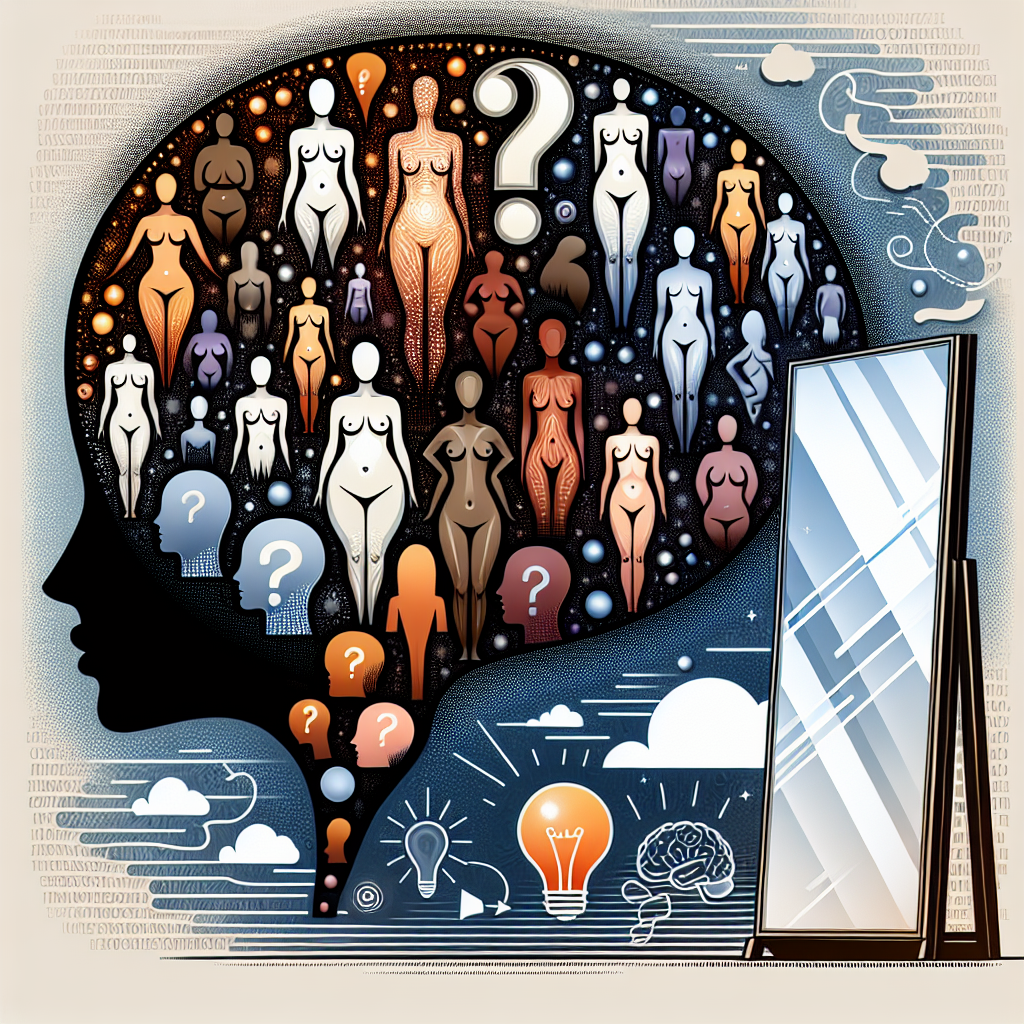Introduction
In a world where social media dictates a significant portion of our perceptions, the topic of body image has never been more relevant. Beyond the Mirror: Understanding the Psychology of Body Image delves into the complexities of how we view ourselves, offering insights that can transform the way we think about our bodies. The connection between our self-perception and our mental well-being can no longer be ignored. As we navigate this intricate landscape, it is essential to understand not only how societal standards shape our views but also how our internal dialogues can foster a healthier relationship with our bodies.
The Importance of Body Image
Body image refers to how we perceive our physical appearance and how we believe others perceive us. This perception can profoundly impact mental health, self-esteem, and overall happiness. Understanding body image is crucial as it affects various life aspects, from social interactions to career choices and romantic relationships.
Society’s Role in Shaping Body Image
One cannot discuss body image without acknowledging societal influences. From advertising to celebrity culture, the pressure to conform to idealized body standards is deeper than ever.
- Case Study: The Impact of Advertising
A study conducted by the University of Pennsylvania found that women exposed to certain types of magazine advertisements reported lower body satisfaction levels. This highlights how external messages can diminish self-worth and reinforce negative perceptions.
Internal Factors Contributing to Body Image
While societal influences are prominent, internal factors play an equally significant role in shaping body image. Low self-esteem often exacerbates negative perceptions, creating a vicious cycle.
- Case Study: Cognitive Behavioral Therapy (CBT)
A clinical trial on CBT as a treatment for body dissatisfaction revealed significant improvements in self-image among participants. By addressing negative thoughts and distortions, individuals learned to navigate their body image more positively.
The Role of Self-Compassion
Self-compassion is a crucial aspect of developing a positive body image. It encourages individuals to treat themselves with kindness and understanding, especially in times of struggle.
- Case Study: Self-Compassion Interventions
Research published in the Journal of Counseling Psychology indicates that self-compassion interventions can lead to better body satisfaction among participants, highlighting the transformative power of kindness to oneself.
The Psychology Behind Body Image
Understanding body image requires exploring various psychological concepts, including self-esteem, identity, and social comparison.
Self-Esteem: A Double-Edged Sword
Self-esteem is closely tied to body image. While high self-esteem can foster a positive self-image, it can also lead individuals to harshly judge themselves based on external standards.
Identity and Body Image
Our body image is often intertwined with our identity. For many, physical appearance is a significant part of who they are. This connection can lead to distress when one does not meet societal standards.
Social Comparison Theory
According to Social Comparison Theory, individuals often evaluate themselves in relation to others. This comparison can lead to feelings of inadequacy and exacerbate negative body image.
Practical Strategies for Improving Body Image
Armed with insights about the psychological mechanisms behind body image, here are actionable strategies for improving self-perception:
1. Cultivate Mindfulness
Mindfulness can help individuals become aware of negative thoughts and patterns surrounding body image. By focusing on the present and accepting thoughts without judgment, individuals can shift their perspective.
2. Challenge Negative Thoughts
Engaging in cognitive restructuring can empower individuals to challenge and replace negative thoughts with positive affirmations.
3. Develop a Healthy Relationship with Media
Curating a media diet that includes diverse body types and positive messages can significantly improve body image.
4. Seek Professional Help
Therapy, particularly forms like CBT, can provide valuable tools for addressing negative body image.
Conclusion
Beyond the Mirror: Understanding the Psychology of Body Image highlights the multi-faceted nature of how we perceive our bodies. It’s essential to recognize the blend of societal influences and internal struggles that inform our self-image. By adopting practical strategies and fostering self-compassion, individuals can cultivate a healthier, more positive relationship with their bodies. Remember, embracing your unique self is a journey that extends beyond the mirror.
FAQs
1. What is a positive body image?
A positive body image is when individuals accept and appreciate their physical self, regardless of societal beauty standards.
2. How can social media affect body image?
Social media often promotes idealized representations of beauty, which can lead to comparisons and negative self-perceptions.
3. What role does self-esteem play in body image?
High self-esteem can lead to a more positive body image, but it can also sometimes cause individuals to harshly judge themselves against societal standards.
4. Can therapy help with body image issues?
Yes, therapy can provide individuals with tools and strategies to improve self-perception and address underlying psychological concerns.
5. What are some quick tips for improving body image?
Some tips include practicing mindfulness, challenging negative thoughts, curating positive media consumption, and seeking professional support when needed.
By exploring these insights, we move beyond the mirror and deepen our understanding of our bodies, leading to personal growth and improved well-being.

